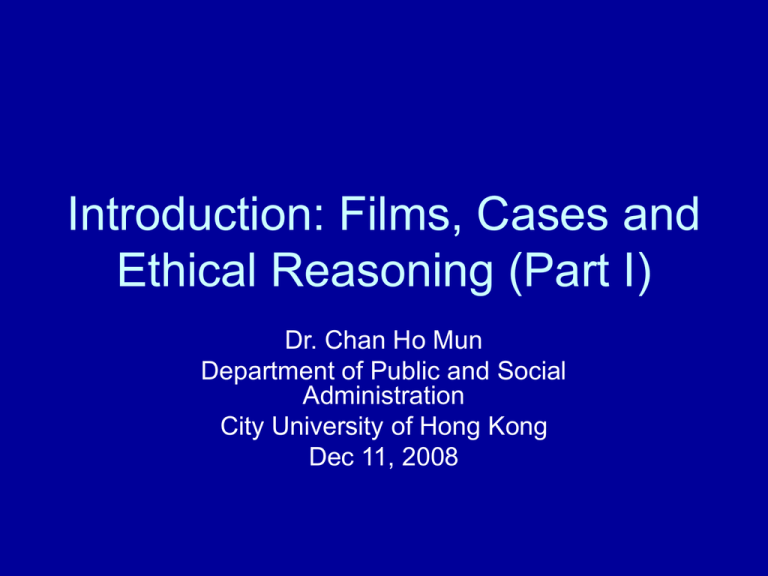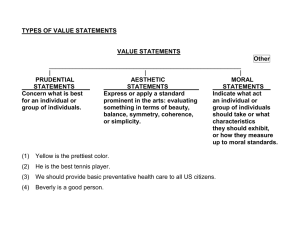Introduction: Films, Cases and Ethical Reasoning (Part I) Dr. Chan Ho Mun
advertisement

Introduction: Films, Cases and Ethical Reasoning (Part I) Dr. Chan Ho Mun Department of Public and Social Administration City University of Hong Kong Dec 11, 2008 Moral Theories • A moral theory consists of a set of moral principles. • These principles specify the conditions under which an action is morally right or wrong, or what makes a person or something good or bad. • They purport to guide our moral reasoning by providing justifications for our actions. • Together with facts about an individual case, we can further judge whether an individual act is morally right or wrong, or whether a person or something is good or bad. Applied Ethics • Applied Ethics: We can resolve any ethical issues by a direct application of some relevant moral theories. • Applied ethics is akin to something like applied mathematics. • Individual cases serve as good illustrations of moral theories. • “a+b = b+a” can be illustrated by “2+3 = 3+2”. • The approach is top-down. Bottom-up Approach (Case-based Approach) • Start with an obvious (real or hypothetical) case where we have a strong intuition or considered judgement that it is morally right/wrong or good/bad. • Cases and our moral intuition (perception) have their own voices and we don’t need to rely on theories to know what is right/wrong or good/bad. • Analogical reasoning: compare it with a problematic case that is structurally similar and then draw a similar conclusion. • Example: Thomson’s arguments for and Marquis’s argument against abortion. Bottom-up Approach (Case-based Approach) • A theory is under challenge if it is inconsistent with our moral intuition. • E.g., achieve social utility by punishing an innocent. Third Way: Reflective Equilibrium • A moral theory is acceptable if it can make sense of and be compatible with our various intuitively appealing beliefs and ideas or firmly held judgements about morality. • Some of the less obvious principles of a moral theory will be modified if the theory fails to do that. • Our less committed beliefs and ideas will be modified or rejected if they cannot be made compatible with the appealing principles of a moral theory. • Is reflective equilibrium something attainable?



